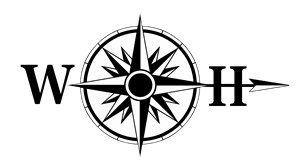Coronavirus
UPDATE FEBRUARY 2022
Wreckhunters was scheduled to start in 2020 but then the pandemic struck.
Since then I have provided regular updates regarding the changing travel situation and speculated as to when we might be able to start the project.
At this time (February 2022) there is much talk about Coronavirus moving from a pandemic to an endemic phase. Before anyone starts to dismiss this as Covid 19 morphing into something no more serious than the common cold, remember that both tuberculosis and malaria are both endemic diseases. In addition, as the world tries to get back to something resembling “normal” this will mean people will mix more. To quote an eminent virologist “there is no mutation without replication”. In other words the more we mix the more variants we can expect.
Having said all that we fully expect that International travel will be functioning reasonably well after April 2022. Which fits in well with our plans for this year.
In terms of Wreckhunters participants we expect everyone to be inoculated against Covid 19 and to be able to prove it. Of course anyone wishing to come on the project will need to comply with what the Honduras Government requires for entry into the country (UK Government foreign travel advice to Honduras – Link Here). On top of which there will be the requirements of any countries that project members will travel through enroute to Honduras. In addition individual airlines may have their own rules.
So although it will be probably be possible to travel it will not be as easy as before the pandemic.
In terms of actual diving in the world of Covid 19 Divers Alert Network (DAN) have produced a list of 10 recommendations for risk prevention and mitigation. It seems extremely unlikely that Covid 19 can survive immersion in salt water so once immersed you are probably quite safe ( I am not aware of any scientific research regarding the survival of Covid 19 when fully immersed in salt water – but neither do I know of any cases of Covid 19 being passed via salt water ). Disinfecting kit periodically would seem sensible – especially those pieces of equipment that come into contact with the nose and mouth.
In the end we will attempt formulate a common sense approach to the situation with two caveats. We will have to comply with local regulations (for example if we are required to wear face masks we will wear face masks ) and will be understanding to the wishes of participants in terms of precautions.
Finally we need to deal with the unfortunate event of a diver contracting Covid 19. The consensus of the present guidelines is that if a diver suffers no/mild symptoms they can dive again after 30 days. If symptoms are more severe the diver should obtain a diving medical before resuming scuba diving. No sane person can argue with these directives in my opinion. Of course, these guidelines are subject to change in the future.
In short we expect to be able to run a field season this year using sensible precautions to deal with Covid 19.
Stay safe
Mike Haigh (FRGS), Project Director
